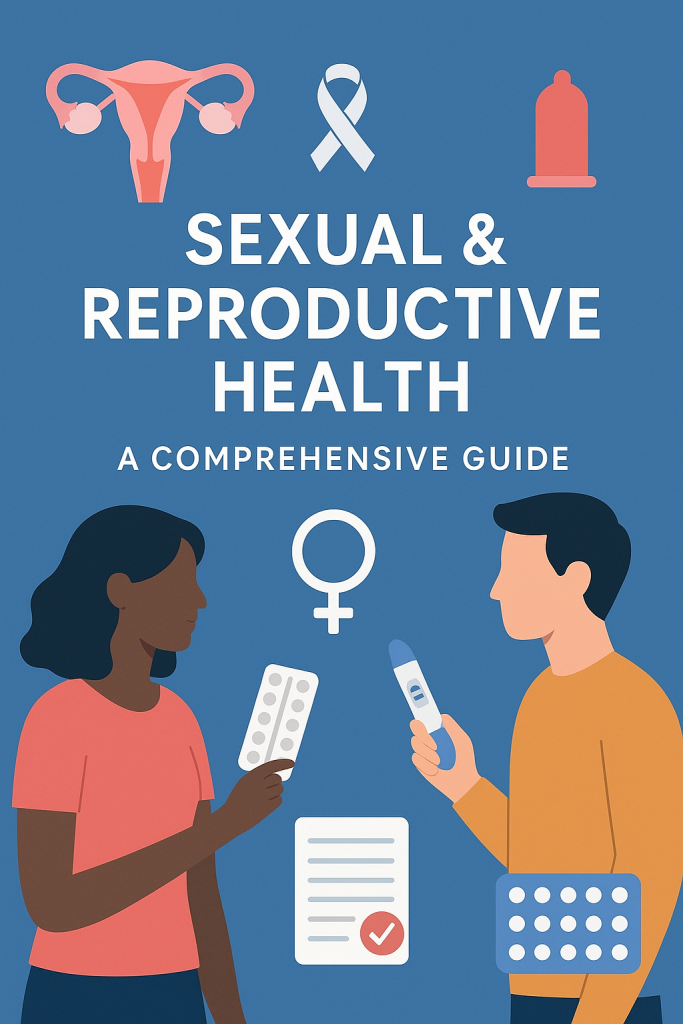Sexual and reproductive health is an essential aspect of overall well-being, encompassing physical, mental, and social well-being in all matters related to the reproductive system. It involves the ability to have a satisfying and safe sex life, the capability to reproduce, and the freedom to decide if, when, and how often to do so. Understanding and maintaining good sexual and reproductive health is vital for individuals and societies alike, as it impacts personal well-being, relationships, and public health outcomes.
Thank you for reading this post, don't forget to subscribe!Importance of Sexual & Reproductive Health
Sexual and reproductive health plays a critical role in ensuring that individuals lead fulfilling and healthy lives. It includes aspects such as education, access to healthcare, and protection from sexually transmitted infections (STIs) and unwanted pregnancies. Poor sexual and reproductive health can lead to severe consequences, including infertility, maternal mortality, and the spread of STIs. Therefore, comprehensive education, accessible healthcare services, and supportive policies are crucial in promoting sexual and reproductive health.
Key Components of Sexual & Reproductive Health
- Comprehensive Sexual Education: Education about sexual and reproductive health is fundamental. It includes understanding anatomy, contraception, STIs, consent, and healthy relationships. Proper education helps individuals make informed decisions about their bodies and relationships, reducing risks and promoting well-being.
- Access to Contraceptives and Family Planning: Family planning allows individuals and couples to control their reproductive lives. Various contraceptive methods, including birth control pills, condoms, intrauterine devices (IUDs), and natural methods, help prevent unintended pregnancies and allow couples to plan their families according to their circumstances.
- Prevention and Treatment of STIs: Sexually transmitted infections such as HIV, chlamydia, gonorrhea, and syphilis pose significant health risks. Regular screening, safe sexual practices, and timely treatment are essential to preventing the spread of STIs and maintaining overall health.
- Maternal and Prenatal Health Care: Proper healthcare during pregnancy ensures the well-being of both the mother and the child. Prenatal care includes regular check-ups, nutritional support, and medical interventions when necessary to reduce the risks associated with pregnancy and childbirth.
- Safe Abortion and Post-Abortion Care: Access to safe abortion services is a critical component of reproductive health. When abortions are performed under unsafe conditions, they can lead to severe health complications or even death. Providing safe abortion services and post-abortion care is essential for reducing maternal mortality and ensuring women’s rights to bodily autonomy.
- Mental and Emotional Well-being: Sexual and reproductive health is not only about physical health but also mental and emotional well-being. Issues such as sexual violence, gender-based discrimination, and the stigma around sexual health can affect individuals’ psychological health. Providing support, counseling, and mental health services is crucial in ensuring overall well-being.
Challenges in Sexual & Reproductive Health
Despite the importance of sexual and reproductive health, several challenges hinder access to necessary services and education. Some of the major challenges include:
- Lack of Awareness and Education: In many societies, discussing sexual health remains taboo, leading to misinformation and unhealthy practices.
- Limited Access to Healthcare Services: Many people, especially in low-income regions, lack access to essential sexual and reproductive health services.
- Cultural and Religious Barriers: In some cultures, restrictive beliefs and traditions prevent individuals from seeking proper reproductive healthcare.
- Gender Inequality: Women and girls often face discrimination that limits their ability to access contraceptive methods, reproductive healthcare, and educational opportunities.
- Sexual Violence and Abuse: Sexual abuse and violence remain major threats to reproductive health, necessitating stronger laws and protective measures.
Promoting Sexual & Reproductive Health
Ensuring comprehensive sexual and reproductive health requires collective efforts from individuals, communities, governments, and healthcare providers. Some key measures to promote reproductive health include:
- Implementing Comprehensive Sexual Education Programs: Governments and schools should integrate evidence-based sexual health education into curriculums to equip young people with accurate and practical knowledge.
- Improving Healthcare Infrastructure: Expanding healthcare facilities, especially in rural areas, ensures that more individuals can access reproductive health services.
- Encouraging Open Communication: Parents, educators, and community leaders should create environments where discussions on sexual and reproductive health are encouraged without fear or stigma.
- Providing Affordable and Accessible Contraceptives: Governments and non-profit organizations should work together to ensure contraceptives are available and affordable to all.
- Supporting Women’s Rights and Gender Equality: Advocacy for gender equality and legal reforms can empower women to take control of their reproductive health choices.
Conclusion
Sexual and reproductive health is a fundamental human right that affects overall well-being, societal development, and public health. Comprehensive education, access to healthcare, and supportive policies are essential in ensuring individuals can make informed decisions about their bodies and lives. By addressing challenges and promoting reproductive health services, societies can create healthier and more empowered communities, paving the way for a better future for all.

